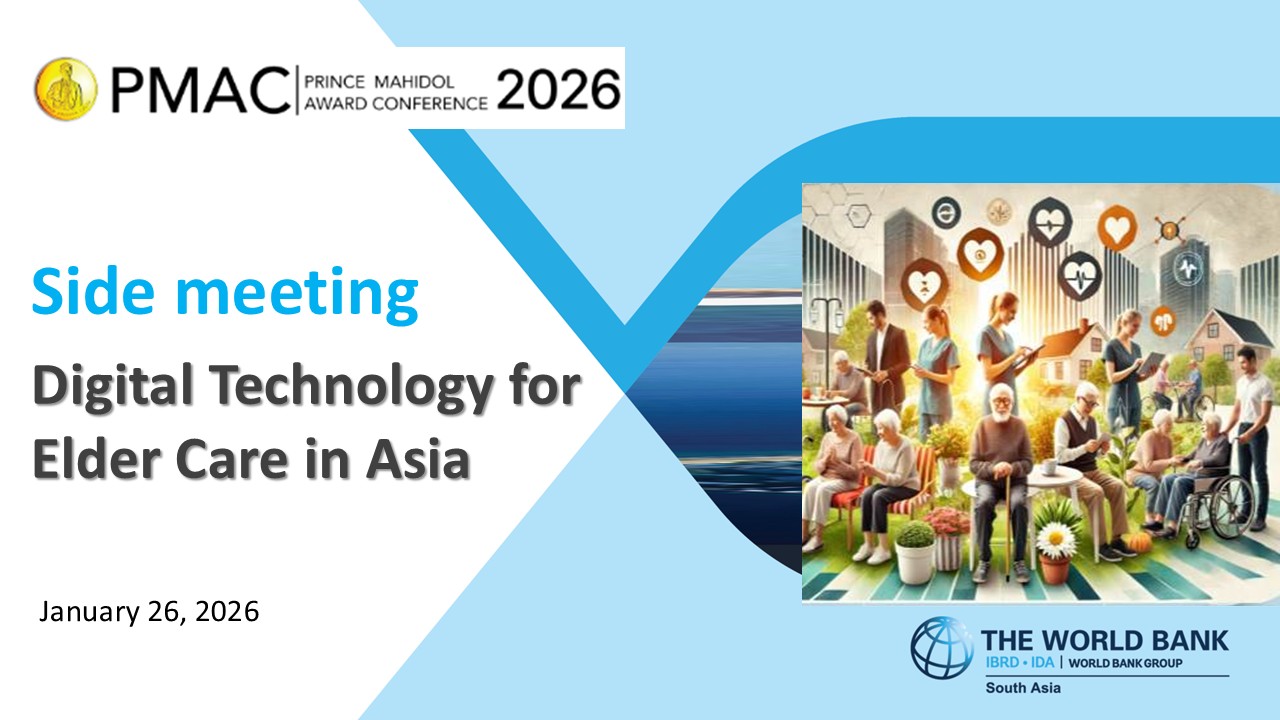Side Meetings
SMB204
Digital Technology for Elder Care in Asia
26
Jan
- The World Bank

The rapid aging of the population in Asia presents both challenges and opportunities for elder care. As the number of elderly individuals continues to grow, there is an increasing need for effective and efficient care solutions. Traditional approach of elder care may not be sufficient to meet the demands of this demographic shift. The advancements in digital technology offer both opportunities and challenges to enhance healthy aging.
Digital solutions can address various aspects of elder care, including service delivery, health monitoring, social engagement, and daily assistance. Wearable health devices can continuously monitor vital signs and alert caregivers to any abnormalities, ensuring timely medical intervention. Telemedicine platforms enable elderly individuals to consult with healthcare professionals from the comfort of their homes, reducing the need for frequent hospital visits. Smart home systems can assist with daily tasks, such as medication reminders and fall detection, promoting independence and safety. Digital technology can also help combat social isolation, a common issue among the elderly. Social engagement platforms and virtual communities can connect elderly individuals with their peers, family members, and caregivers, fostering a sense of belonging and emotional well-being. These technologies can also provide access to recreational activities and lifelong learning opportunities, enriching the lives of the elderly.
This session aims to explore the current state and future prospects of digital technology in elder care in the Asian context. Additionally, the session will address the challenges and barriers to adoption, such as technological literacy, affordability, and cultural acceptance. By leveraging the potential of digital technology, we can improve the quality of life for the elderly and ensure that they receive the care and support they deserve.
- Highlight current innovations in service delivery: Showcase the latest digital technologies being used in delivering elder care in Asian countries
- Discuss implementation challenges and solutions: Identify and discuss solutions to overcome the barriers in adopting digital technology in elder care, such as digital literacy
- Explore Future Trends: Predict future developments in digital technology for elder care and their potential impact on the elderly population in Asia.

